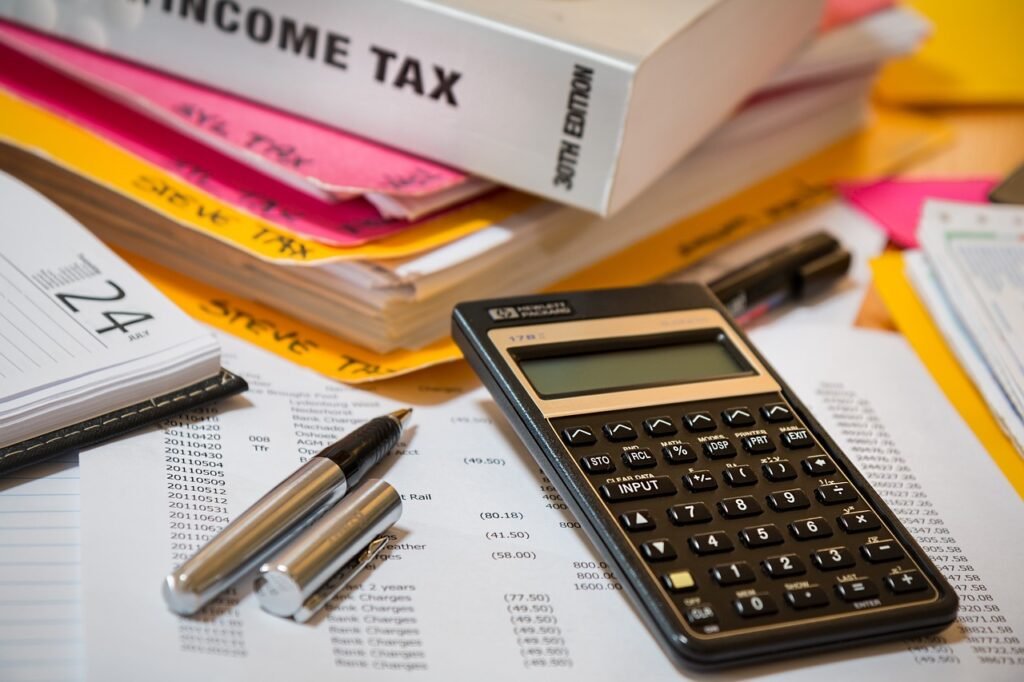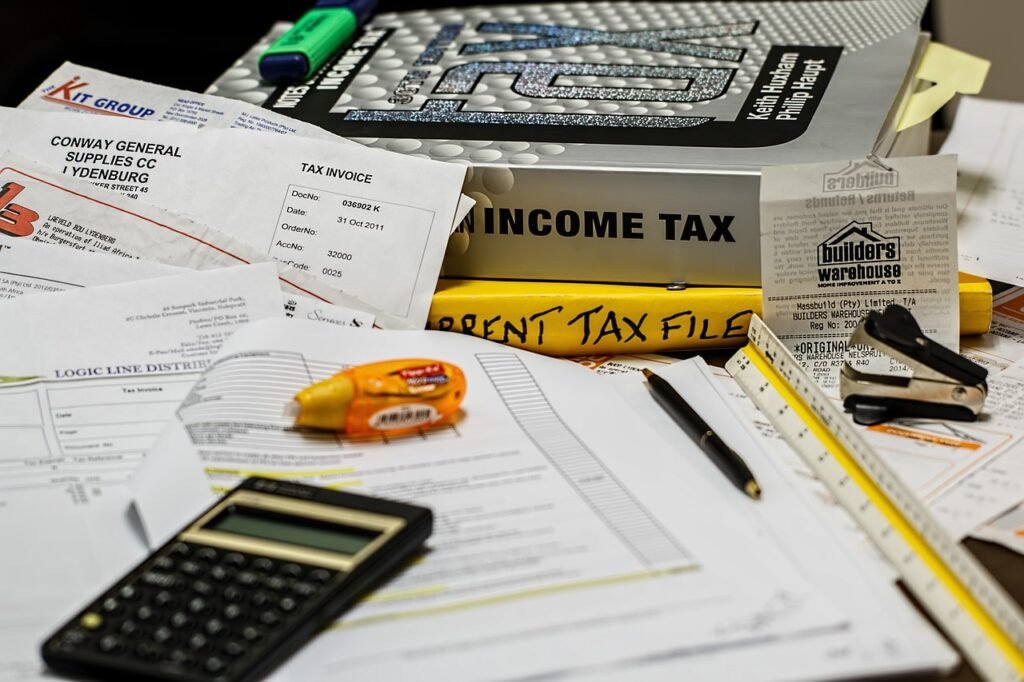Master Your Self-Assessment with the Expertise of MABS Accountants & Consultants
Navigating the world of self-assessment can be a daunting task. From calculating your tax liabilities to completing a self-assessment tax return, the process can be complex and time-consuming. MABS Accountants & Consultants offers a comprehensive self-assessment service designed to alleviate stress and confusion, giving you peace of mind knowing your tax affairs are in expert hands. We’re here to help you understand your tax obligations and ensure you pay your taxes correctly and on time so you can breathe easy and focus on your business.
Self-assessment is a critical part of managing your income and ensuring compliance with HMRC regulations. Whether you’re a sole trader, have rental income, or want to manage your income effectively, understanding the intricacies of self-assessment is crucial. Many individuals find the process of completing a self-assessment overwhelming, but with the proper support, it doesn’t have to be. Our assessment service takes the burden off your shoulders, allowing you to focus on what you do best.

At MABS, we offer a dedicated -assessment and tax return service tailored to your specific needs. We understand that every individual’s tax situation is unique, which is why we provide a personalized tax service. Our team of experienced professionals will review your self-assessment, ensuring accuracy and identifying any potential tax refund opportunities. We’ll help you calculate your tax liabilities accurately and efficiently so you know exactly what you owe because we believe in treating each client as a unique case.
Self-employment and self-assessment often go hand-in-hand. If you’re a sole trader, understanding your tax obligations is paramount. Our self-assessment service is specifically designed to help small businesses and sole traders manage their tax affairs. We can assist with filling out your tax return, ensuring you meet the 31st January deadline, and avoid any penalties.

The amount of tax you owe depends on several factors, including your taxable income. Our team will meticulously calculate your taxable income and ensure you understand the amount of tax due. We’ll also help you explore tax-efficient strategies to minimize your tax burden while remaining fully compliant. Our assessment filing service ensures your assessment tax return service is handled professionally and efficiently.
Self-assessment isn’t just about filling your tax return; it’s about understanding your tax situation and taking control of your finances. Our self-assessment and tax return service provides comprehensive support, from tax calculation to assessment filing. We’ll help you collect income tax information, ensuring you have all the necessary documentation to support your self-assessment. Understanding your tax situation is key to making informed financial decisions, and we’re here to help you every step of the way.

Don’t leave your self-assessment to the last minute. Our hassle-free and fixed fee service provides peace of mind, knowing your tax return online submission is in expert hands. We can also help you file your self-assessment and tax return service and ensure your online tax return submission is accurate and timely. We understand the importance of meeting the 31st January deadline. We will work diligently to ensure your assessment tax return service is completed well in advance so you can rest assured that your tax affairs are in order.
Completing a self-assessment can be complex, but with MABS, it doesn’t have to be. Our self-assessment service is designed to simplify the process and give you the peace of mind you deserve. We’ll guide you through every step, from tax calculation to assessment filing, ensuring your tax obligations are met and you understand your tax situation. We help you collect income tax information and ensure you understand how to file your self-assessment tax return service.
We provide a comprehensive self-assessment service that includes:
- Self-assessment completion and filing
- Self-assessment and tax return service
- Assessment service for all your assessment filing needs
- Expert advice on tax-efficient strategies
- Assistance with calculating your tax liabilities
- Support for completing a self-assessment
- Guidance on how to pay your tax
- Personalized service tailored to your tax situation
- Help with reviewing your self-assessment
- Support for small businesses and sole traders
- Assistance with filling out your tax return
- Guidance on understanding your tax obligations
- Help with understanding your taxable income
- Support for tax return online submissions
Contact MABS Accountants & Consultants today for a hassle-free and fixed-fee self-assessment service. Let us help you navigate the complexities of self-assessment and ensure you meet your tax obligations with confidence. We can help you understand the amount of tax you owe and help you maximize any potential tax refund. Our assessment tax return service is designed to give you peace of mind and ensure your tax affairs are managed efficiently and effectively.

Frequently Asked Questions about Self-Assessment and Tax Returns (from MABS Accountants & Consultants)
MABS Accountants & Consultants understands that navigating the complexities of self-assessment tax returns can be daunting. That’s why we’ve compiled these frequently asked questions to provide clarity and guidance.
General Self-Assessment and Tax Returns–
What is a self-assessment tax return service, and why would I need one?
At MABS Accountants & Consultants, our self-assessment tax return service helps individuals and sole traders accurately calculate their tax liabilities and efficiently file their self-assessment tax returns. We’re particularly valuable for those who find completing a self-assessment challenging, want personalized tax advice, or prefer a hassle-free approach to managing their tax affairs. Our expertise ensures you’re being tax efficient and maximizing any potential tax refund.
I'm a sole trader. Do I need to file a self-assessment tax return?
Yes, as a sole trader, you are responsible for managing your tax obligations. You’ll need to file a self-assessment tax return to declare your personal income, including profits from your business, and calculate your tax liabilities. MABS Accountants & Consultants can guide you through this process, ensuring you pay your tax correctly to HMRC (Her Majesty’s Revenue and Customs).
What are the key benefits of using MABS Accountants & Consultants’ self-assessment and tax return service?
Choosing MABS Accountants & Consultants offers several key benefits:
- Accurate tax calculation: Ensuring you pay the correct amount of tax and maximize any tax refund.
- Peace of mind: Knowing your tax affairs are handled accurately and professionally.
- Tax efficient advice: Identifying opportunities to minimize your tax burden and maximize your income.
- Hassle-free process: Saving valuable time and effort by letting our experts handle the paperwork.
- Personalized tax advice: Tailored to your specific tax situation, including rental income if applicable.
How do I file my self-assessment tax return online?
You can file your self-assessment tax return online through the HMRC website. MABS Accountants & Consultants can assist you with this process, ensuring accurate completion and timely submission.
What is the deadline for filing my self-assessment tax return and paying my taxes?
The deadline for filing your self-assessment tax return online is typically the 31st of January following the end of the tax year. The same deadline usually applies to paying your tax. MABS Accountants & Consultants can help you stay on track.
Calculating Tax Liabilities and Taxable Income–
How do I calculate my tax liabilities as a sole trader?
Calculating your tax liabilities involves determining your taxable income (your profits after allowable expenses) and applying the relevant tax rates. MABS Accountants & Consultants can assist with this tax calculation, ensuring accuracy and compliance.
What is taxable income, and how is it determined?
Taxable income is the portion of your income that is subject to tax. For sole traders, it’s typically your business profits after deducting allowable expenses. For individuals, it includes various sources of income, such as salary, rental income, and self-employment income. MABS Accountants & Consultants can help you identify all applicable income sources.
How can I ensure I'm being tax efficient?
Being tax efficient involves understanding the tax rules and utilizing available allowances and deductions to minimize your tax liability. This might include claiming expenses related to your business, contributing to pension schemes, or utilizing other tax-saving strategies. MABS Accountants & Consultants provides personalized tax advice to optimize your tax position.
Sole Traders and Small Businesses–
I'm a sole trader with rental income. How do I include this on my self-assessment tax return?
You’ll need to declare your rental income on your self-assessment tax return. There are specific sections for reporting rental income and associated expenses. MABS Accountants & Consultants can guide you through this process, ensuring accurate reporting.
What are my tax obligations as a sole trader?
As a sole trader, your tax obligations include:
- Registering with HMRC.
- Keeping accurate records of your income and expenses.
- Completing a self-assessment.
- Filing your self-assessment tax return by the deadline.
- Paying your tax on time.
MABS Accountants & Consultants can help you manage all these obligations.
Are there any specific tax considerations for small businesses?
Yes, small businesses, including sole traders, have specific tax considerations, such as allowable expenses, VAT registration (if applicable), and National Insurance contributions. Understanding these considerations is crucial for managing your tax affairs effectively. MABS Accountants & Consultants offers expert guidance on these matters.
How can MABS Accountants & Consultants’ fixed fee self-assessment tax return service benefit my small business?
Our fixed fee service offers predictable pricing, making it easier to budget for your tax preparation costs. It also ensures you receive the necessary support without worrying about hourly rates.
What if I need help reviewing my self-assessment before filing?
MABS Accountants & Consultants provides a thorough review service. This gives you peace of mind that your return is accurate and complete before you submit it.
Tax Year, Deadlines, and Payments–
What is the tax year in the UK?
The UK tax year runs from the 6th of April to the 5th of April the following year.
When do I need to pay my taxes after filing my self-assessment tax return?
The payment deadline is usually the 31st of January, the same as the filing deadline. It’s crucial to pay your taxes on time to avoid penalties. MABS Accountants & Consultants can remind you of important deadlines.
How do I pay my tax?
You can pay your tax online through your HMRC account, by bank transfer, or by other methods outlined on the HMRC website.
What happens if I miss the 31st of January deadline?
If you miss the deadline for filing or paying your tax, you may incur penalties. It’s essential to contact HMRC as soon as possible if you anticipate any issues. MABS Accountants & Consultants can assist you in these situations.
What is involved in completing a self-assessment?
Completing a self-assessment involves gathering all your financial records for the tax year, calculating your income and expenses, completing the self-assessment tax return form (either online or on paper), and submitting it to HMRC by the deadline. MABS Accountants & Consultants can manage this entire process for you.
Tax Refunds and Assessments–
What happens if I'm due a tax refund?
If you’ve overpaid tax, you’ll receive a tax refund from HMRC. This is usually paid directly into your bank account.
What is an assessment filing or assessment tax return service?
These terms usually refer to the process of preparing and submitting your self-assessment tax return. MABS Accountants & Consultants offers comprehensive assessment filing services.
How does HMRC collect income tax?
HMRC collects income tax through various methods, including PAYE (Pay As You Earn) for employed individuals, and self-assessment for self-employed individuals and those with other sources of income.
I'm concerned about my tax situation. Who can help?
MABS Accountants & Consultants can provide personalized advice and support tailored to your specific tax situation. We can help you understand your tax obligations, ensure you’re being tax efficient, and give you peace of mind. Contact us today for a consultation.
For any information or to inquire about the service, feel free to call our following numbers.
